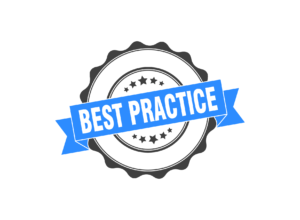Legally Compliant Job Interviews

The spontaneous and unpredictable nature of the job interview makes it an event that can lead to claims of discrimination. Things that you say in the interview can later lead to a lawsuit by an unhappy applicant.
The interview does not have to be such a perilous place, if you follow this simple rule:
Do not ask about any characteristic of the applicant that the law prohibits you from considering in making your decision.
To minimize the risk of discrimination lawsuits, it’s important for interviewers to be familiar with topics that aren’t permissible as interview questions. For example, you shouldn’t ask a female applicant detailed questions about her husband, children and family plans. Such questions can be used as proof of sex discrimination if a male applicant is selected for the position, or if the female is hired and later terminated. Older applicants shouldn’t be asked about their ability to take instructions from younger supervisors. Also, don’t ask an applicant what his or her race or religion is, because this is an illegal question. And don’t panic if an applicant raises a delicate subject — such as disability or national origin — without any prompting from you. You can’t raise such subjects, but the applicant can.
It is also important to avoid making statements during the interview process that could be alleged to create a contract of employment. When describing the job avoid using terms like “permanent,” “career job opportunity,” or “long term.” Interviewers should also avoid making excessive assurances about job security. Avoid statements that employment will continue as long as the employee does a good job. For example, suppose that an applicant is told that “if you do a good job, there’s no reason why you can’t work here for the rest of your career.” The applicant accepts the job and six months later is laid off due to personnel cutbacks. This could lead to a breach of contract claim where the employee asserts that he or she can’t be terminated unless it’s proven that he or she didn’t do a “good job.” Courts have, on occasion, held that such promises made during interviews created contracts of employment.
Every recruiter, hiring manager, executive, and department manager must realize that asking the wrong interview questions or making improper inquiries can lead to discrimination or wrongful discharge lawsuits, and these suits can potentially be won or lost based on statements made during the interview process. Thus, it is important to incorporate risk management into your interviewing process to help minimize your organization’s exposure to employment practices liability.
SO WHAT CAN YOU ASK?
Before the interview, create two lists: one of all the tasks that the applicant will have to perform as part of the job and the other of all the skills and experience that you require for the position. This will help you focus on what you really need to know, which is whether the applicant can do the job. At the interview, you can ask the applicant whether she will be able to perform each of the essential tasks, and you can also ask if they possess the requisite skills and experience
The lists will help you in a second way. If you use each list with each applicant, you can ensure that you are asking all applicants essentially the same questions. This will assure that you are treating all applicants equally during the interviewing process.
The following chart provides a summary of what you may ask, and the most legally compliant way to ask the question.
| Subject | Lawful Inquiry | Unlawful Inquiry |
| Age | Are you 18 years of age or older? (To determine if the applicant is legally old enough to perform the job) | How old are you? |
| Marital status | Does this employer employ your spouse? (If your company has a nepotism policy) | Are you married? |
| Citizenship | Are you legally authorized to work in the United States on a full-time basis? | Are you a native-born citizen of the United States? Where are you from? |
| Disability | These [provide applicant with list] are the essential functions of the job.
How would you perform them? |
Do you have any physical disabilities that would prevent you from doing this job? |
| Drug and alcohol use | Do you currently use illegal drugs? | Have you ever been addicted to drugs |